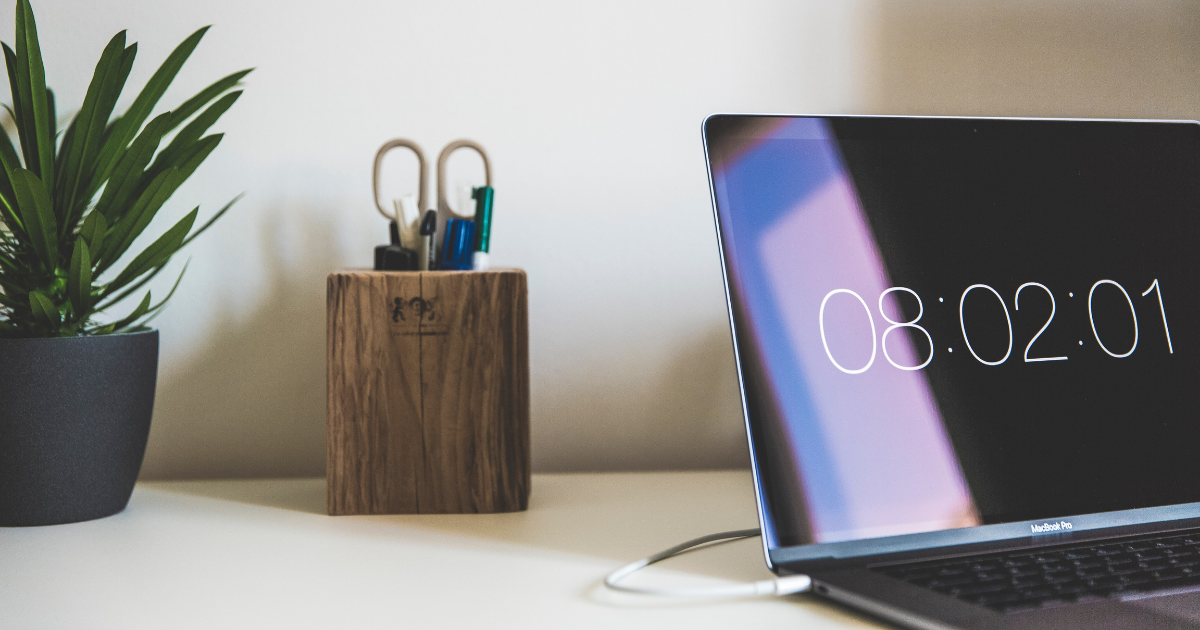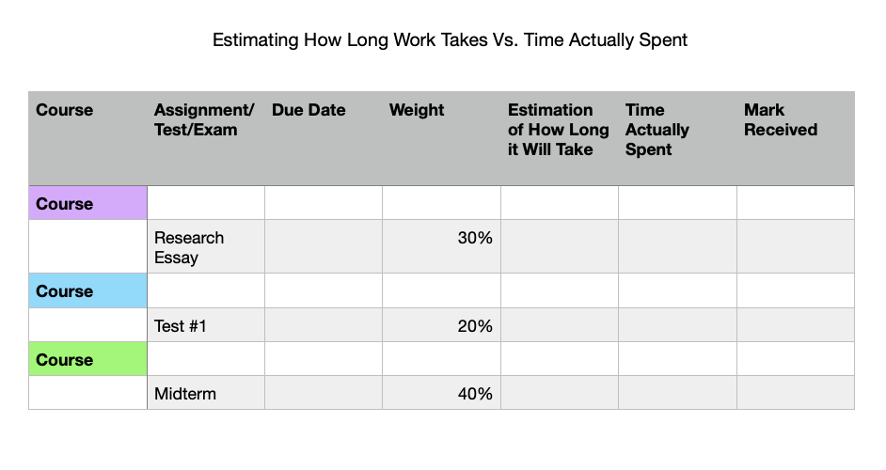7 Ways I Improved My Time Management Skills in First Year
 Written by: Autumn Calhoun, 2nd Year, Major in French for Teaching at Brescia
Written by: Autumn Calhoun, 2nd Year, Major in French for Teaching at Brescia
Photo by Markus Spiske on Unsplash
When I started first year I felt overwhelmed by how much I had to do. Luckily, there were resources and people to help me. With hard work and an open mind, I learned new skills and strategies for managing my time more effectively. Here are some of the strategies that help me succeed in university:
1. Keep a Term Calendar.
At the beginning of each term, I print a four-month term calendar from the Learning Development and Success website (they have many great resources, including free printable calendars and learning skills presentations). Then, using a different colour pen for each course, I fill in all of my due dates, tests, and exams. These term calendars let me see which weeks are going to be extra busy. I circle the busy weeks and figure out if there is anything I can get started on ahead of time to make those busy weeks more manageable.
2. Predict and Track How Long Assignments Take.
This was one of the early steps I started taking to improve my time management skills. It’s been eye-opening. I keep a document on my laptop where I predict how long various assignments will take me; then record the actual amount of time I spend. I realized that I often underestimate how long assignments will take me. I also tend to spend unnecessary amounts of time trying to perfect every sentence as I write. Predicting and tracking my time helps me notice my current work habits and determine how I need to modify them. I use a table like the one below.

3. Use a Weekly Schedule.
I keep a weekly schedule (with blocks for each half hour) in the front pocket of my binder. I include activities like classes or events that I know I will be attending, but I don’t plan out every half hour of my day. I prefer to record how I spend my time as I go. My weekly schedule acts as a map of my week and helps me “see” my time. It also serves as a visual reminder of when classes are and how much time I have between them. Finally, a weekly schedule draws attention to how close tests and due dates really are—I don’t have much unscheduled time left before that Thursday morning class!
4. Use Timers.
At first, I was unconvinced that using a timer and taking regular breaks would be effective—what if I didn’t go back after the break? But I wanted to improve my work habits so I decided to give the strategy a try. After a little getting used to, I found myself recommending the timer strategy to my friends! The method I use is known as the Pomodoro technique (25 minute periods of work alternating with 5 minute breaks). Using a timer is helpful because it alerts me when it’s time to take a break and when the break is over. I find that five minute breaks are short enough to not lose focus, but long enough that I return to work feeling refreshed. During five-minute breaks, I leave my desk and avoid looking at a screen. I might step outside, walk up and down the stairs a few times, grab a snack or simply relax.
5. Limit Perfectionism.
I find that too much perfectionism can make tasks seem more overwhelming than they need to be. I’ve noticed that a lot of my procrastination stems from feeling overwhelmed. Of course, when I attempt to write an essay from a blank page and find myself hitting backspace after every few words, I’m going to feel overwhelmed. I realized my writing perfectionism was slowing me down. Now, instead, I generate ideas in bullet points and messy paragraphs first and then make them into well-written sentences. There are times when I start to fall back into my old ways of writing, but I try to remind myself that an incomplete assignment with an excellent opening paragraph is farther from “perfect” than a complete assignment.
6. Set Goals That Minimize Procastination.
If anything gets in the way of effective time management, for me, it’s procrastination. So, I changed the way I set study goals in hopes to reduce procrastination. Rather than setting goals of what I hope to finish, I set goals of how long I am going to dedicate myself to some focused and uninterrupted work. My study goal might be something like: “I’m going to work on my essay for two timers, then spend two timers studying for my French test,” instead of, “I’m going to finish the intro and paragraph one, then study for my French test.” What I’ve noticed is that the second goal doesn’t have a clear end in sight—who knows how long paragraph one might take me to write? Whereas, with the first study goal, I know that if I stay focused, I will achieve my goal in two hours. I’ve also found that I’m less likely to procrastinate studying when I don’t feel pressure to “finish” something. Instead, with enough focused work time, I will naturally finish my assignments.
However, I also accept that sometimes I will procrastinate. Some days (and even reading weeks), I won’t get as much done as I would have liked. When this happens, I feel disappointed, but I try to accept those days as breaks I must have needed. When I’m compassionate toward myself after an unproductive day, I feel more confident in my ability to try again tomorrow.
7. Allow for Quality Transition Time.
I’ve realized that making the most of my time doesn’t mean using every second. I’m more productive when I take some time to just be in the moment rather than reciting my to do list in my head, as I run from building to building. When I allow myself quality transition time, I find I’m able to be more focused and productive when I sit down to work. Just like taking breaks between studying is helpful, I think it’s important to enjoy the natural “breaks” throughout the day. During the time between classes, I often take walks outside and admire the fall leaves or the vibrant green of spring. I try to enjoy my lunch, rather than eat absentmindedly. I stop and talk to friends on my way out of class. On the bus ride home, I might look out the windows or reflect on my day. These moments are important, and they help me return to schoolwork feeling refreshed.
Overall, I believe learning time management is a lifelong process—and that different strategies work best for different people at different times in their lives. These are strategies that worked for me as a first year university student. I am still learning and improving my skills, but I hope some of these strategies can help other students succeed and feel more confident in managing their time.
Published on

